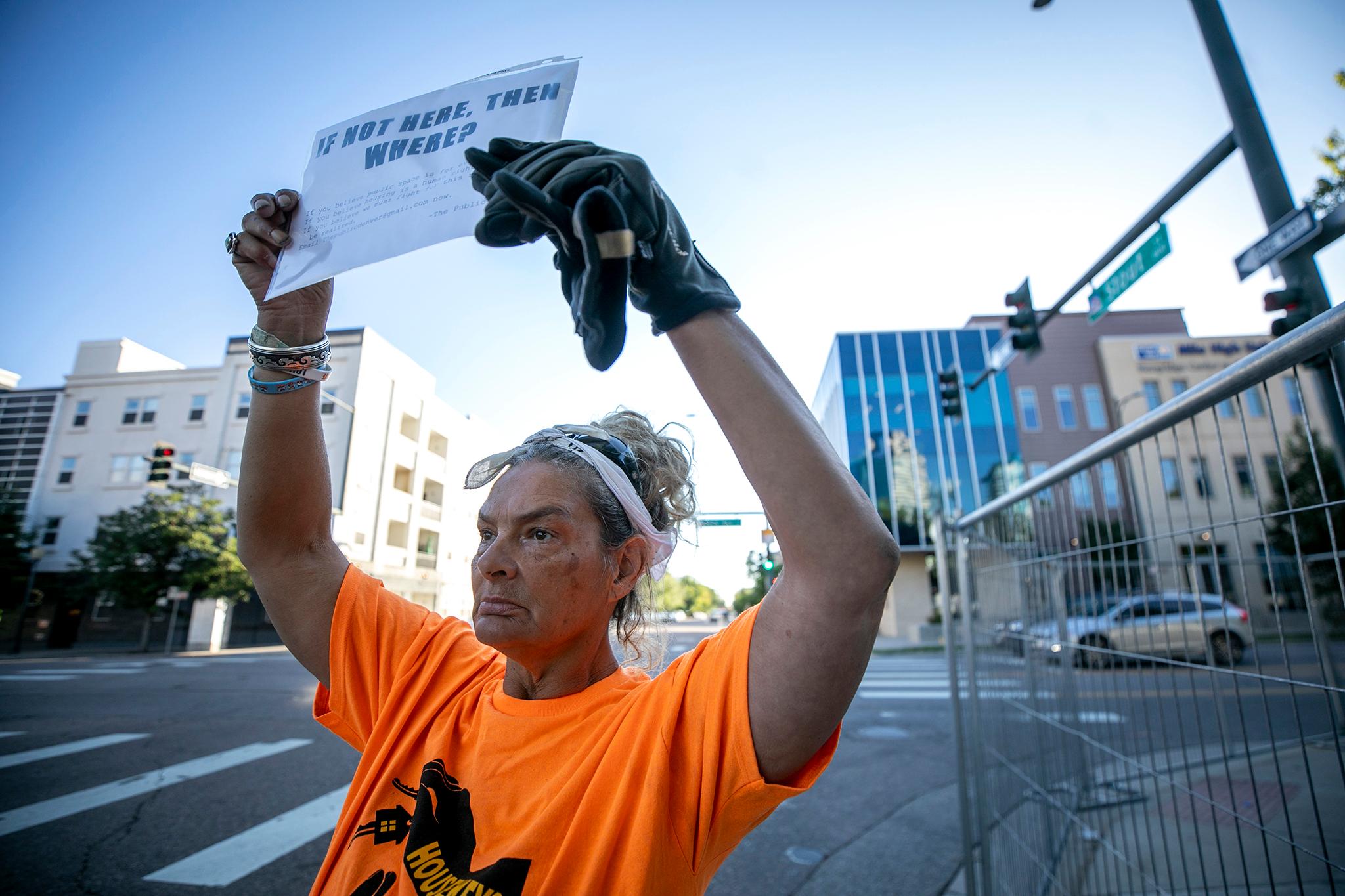Mayor Mike Johnston's administration took a step toward its goal of sheltering 1,000 people experiencing homelessness by Dec. 31 on Monday. City Council approved a $7 million contract for temporary pallet shelters for 200 people.
The pallet shelters provide private spaces with a bed, storage, outlets, heating and air conditioning. The communities, similar to the city's safe outdoor sites, will have common spaces and bathrooms, along with wraparound services. Johnston said each city district will host a site, and released a list of preliminary locations on Thursday.
Before approving the contract for the shelters with Pallet PBC Inc., some council members questioned the $7 million price tag for shelters that will ultimately be temporary. That cost does not include a future contract with an organization to run the shelter sites.
"I appreciate how quickly you all are moving," said Councilmember Stacie Gilmore. "But we as Council have a fiduciary responsibility to make sure that that investment is a good deal for our taxpayers."
Gilmore cited a presentation from the Department of Housing Stability (HOST) Wednesday that said the city spends between $15,000 to $35,000 on development per unit of affordable rental housing and $45,000 on development per unit of supportive housing, forms of permanent apartment-style housing.
For comparison, HOST said the city annually spends $25,000 per bed at a 24/7 group shelter, $32,000 per bed at non-congregate shelters and $15,000 per bed at other shelters like safe outdoor sites and tiny homes.
Cole Chandler, Johnston's senior advisor for homelessness resolution, said that the $35,000 per unit figure for long-term housing is only a portion of the overall cost. He added the pallet shelters are currently projected to cost $17,000 per unit, because other costs in the contract include money for community buildings and bathrooms.
"I certainly don't want to position it as if it's an either-or of whether or not we're going to invest in long term affordable housing or whether or not we're going to invest in what we need in this moment," Chandler said. "Housing is the solution to homelessness. We fully understand that... [short-term shelter] is needed just as the long-term affordable housing unit is needed."
Still, city funding is limited, and officials need to figure out the balance between short-term and long-term investments.
Activists have questioned the focus on short-term shelter. Therese Howard, an organizer with Housekeys Action Network, told Denverite she wants to see more investment in long term housing units. Instead of short-term shelters, she wants Denver to use a master leasing system where the city sublets apartments to renters as a way to open up immediate housing into long-term units.
Councilmember Jamie Torres said that Denver already spends a lot of money responding to the city's homelessness and housing crisis in the moment through indirect costs, including things like emergency room services, drug recovery programs and police spending.
An April audit report of the city's homeless sweeps found that the city spent $13.65 million responding to encampments between Jan. 2019 and June 2022, but that the real cost is likely higher because it does not include police expenses. Meanwhile, UCHealth reported a record number of frostbite patients last winter.
"If we don't house people in some way on a bridge to something else, we will still pay," Torres said.
City Council unanimously passed the funding Monday. But Gilmore gave the Mayor's office instructions for future contracts to come.
"We'll vote affirmatively tonight on this bill, but we need much better cost benefit analysis. You're going on four weeks here. I think we've given our grace and support around this," she said. "We, at the end of the day, do have limited dollars to go around and want to make sure that we're not only investing for today, but for the long term for those dollars."













